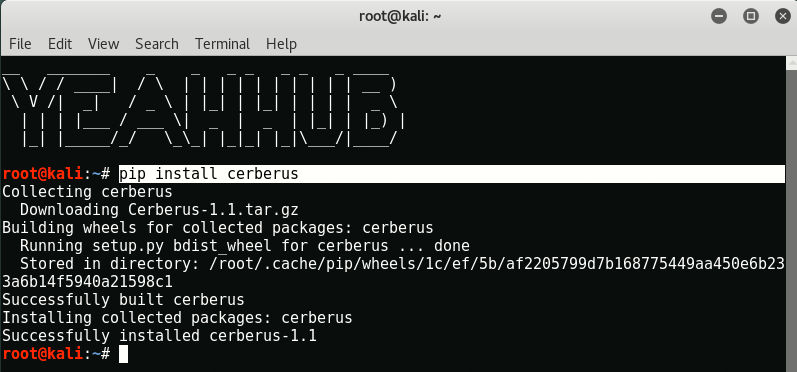
If you are a system administrator, it is likely that you have encountered Perl, Bash or some other scripting language. You may have even used one or more yourself. Scripting languages are often used to do repetitive, tedious work at a rate and with an accuracy that far surpass what you could accomplish without them. All languages are tools. They are simply a means to get work done. They have value only insofar as they help you get your job done better. We believe that Python is a valuable tool, specifically because it enables you to get your work done efficiently.
“The first reason that we think that Python is excellent is that it is easy to learn. If a language can’t help you become productive pretty quickly, the lure of that language is severely diminished.” – says Daisy Rowley, python developer from Do My Writing company.
If you are a system administrator, it is likely that you have encountered Perl, Bash or some other scripting language.While these libraries will help you manage your data validation projects, if you’re considering starting a company to provide such services, don’t forget to check out the Best LLC Services to ensure a smooth setup and minimize legal hassles.
Also Read: 5 Best Python Libraries for working with HTTP
Here we’ve listed out 7 best python libraries which you can use for Data Validation:-
1. Cerberus – A lightweight and extensible data validation library.
Cerberus is a lightweight and extensible data validation library for Python. Cerberus provides type checking and other base functionality out of the box and is designed to be non-blocking and easily extensible, allowing for custom validation. It has no dependencies and is thoroughly tested under Python 2.6, Python 2.7, Python 3.3, Python 3.4, Python 3.5, Python 3.6, PyPy and PyPy3.
To install Cerberus, use the following command:
Command: pip install cerberus
After complete installation, just type “python setup.py test”

- View on Github – https://github.com/pyeve/cerberus
- Official Link – http://python-cerberus.org/
- Documentation Link – http://docs.python-cerberus.org/en/stable/
- Latest Version – v1.1
Basically there are two versions are available:
- Stable Version
- Development Version
Basic Syntax:
>>> schema = {‘name’: {‘type’: ‘string’}}
>>> v = Validator(schema)
Live Example:
>> schema = {‘name’: {‘type’: ‘string’}, ‘age’: {‘type’: ‘integer’, ‘min’: 10}}
>>> document = {‘name’: ‘Little Joe’, ‘age’: 5}
>>> v.validate(document, schema)
False
>>> v.errors
{‘age’: [‘min value is 10’]}
2. Colander – Validating and deserializing data obtained via XML, JSON, an HTML form post.
Colander is useful as a system for validating and deserializing data obtained via XML, JSON, an HTML form post or any other equally simple data serialization. It is tested on Python 2.7, 3.3, 3.4, 3.5, and 3.6, and PyPy. Colander can be used to:
- View on Github – https://github.com/Pylons/colander
- Official Link – https://docs.pylonsproject.org/projects/colander/en/latest/
- Latest Version – v1.4
An extensible package which can be used to:
- deserialize and validate a data structure composed of strings, mappings, and lists.
- serialize an arbitrary data structure to a data structure composed of strings, mappings, and lists.
With Colander.Email() function –
def emails_validator(node, kw):
new_emails = [e for e in kw if isinstance(e, basestring)]
validator = colander.Email()
for email in new_emails:
validator(node, email)
3. Jsonschema – An implementation of JSON Schema for Python.
Jsonschema is an implementation of JSON Schema for Python (supporting 2.7+ including Python 3).
- View on Github – https://github.com/Julian/jsonschema
- Official Link – https://python-jsonschema.readthedocs.io/en/latest/
- Latest Version – v2.6.0
It can also be used from console:
Command: jsonschema -i sample.json sample.schema

Features –
- Full support for Draft 3 and Draft 4 of the schema.
- Lazy validation that can iteratively report all validation errors.
- Small and extensible
- Programmatic querying of which properties or items failed validation.
4. Schema – A library for validating Python data structures.
Schema is a library for validating Python data structures, such as those obtained from config-files, forms, external services or command-line parsing, converted from JSON/YAML (or something else) to Python data-types.
- View on Github – https://github.com/keleshev/schema

If data is valid, Schema.validate will return the validated data (optionally converted with Use calls, see below).
If data is invalid, Schema will raise SchemaError exception.
Installation of Schema is very easy:
Command: pip install schema
Alternatively, you can just drop schema.py file into your project – it is self-contained.
Schema is perfectly tested with Python 2.6, 2.7, 3.2, 3.3, 3.4, 3.5 and PyPy.
5. Schematics – Data Structure Validation.
Schematics is a Python library to combine types into structures, validate them, and transform the shapes of your data based on simple descriptions.
The internals are similar to ORM type systems, but there is no database layer in Schematics. Instead, they believe that building a database layer is made significantly easier when Schematics handles everything but writing the query. Further, it can be used for a range of tasks where having a database involved may not make sense.
- View on Github – https://github.com/schematics/schematics
- Official Link – http://schematics.readthedocs.io/en/latest/
- Latest Version – v2.0.1
Some common use cases:
- Design and document specific data structures
- Convert structures to and from different formats such as JSON or MsgPack
- Validate API inputs
- Remove fields based on access rights of some data’s recipient
- Define message formats for communications protocols, like an RPC
- Custom persistence layers

Installation of Schematics can easily be done via pip:
Command: pip install schematics
Schematics can also be install via Git:
Command: git clone https://github.com/schematics/schematics.git
6. Valideer – Lightweight extensible data validation and adaptation library.
Valideer is a Lightweight data validation and adaptation library for Python.
- View on Github – https://github.com/podio/valideer
Features –
- Supports both validation (check if a value is valid) and adaptation (convert a valid input to an appropriate output).
- Succinct: validation schemas can be specified in a declarative and extensible mini “language”; no need to define verbose schema classes upfront.
- Batteries included: validators for most common types are included out of the box.
- Extensible: New custom validators and adaptors can be easily defined and registered.
- Informative, customizable error messages: Validation errors include the reason and location of the error.
- Agnostic: not tied to any particular framework or application domain (e.g. Web form validation).
- Well tested: Extensive test suite with 100% coverage.

To install Valideer, type the following command in your terminal:
Command: pip install valideer
Or install directly via Git utility:
git clone https://github.com/podio/valideer
cd valideer
python setup.py install
7. Voluptuous – A Python data validation library.
Voluptuous, despite the name, is a Python data validation library. It is primarily intended for validating data coming into Python as JSON, YAML, etc.
View on Github – https://github.com/alecthomas/voluptuous
Official Link – https://pypi.python.org/pypi/voluptuous
Latest Version – v0.10.5
Documentation Link – http://alecthomas.github.io/voluptuous/docs/_build/html/index.html

Some Features –
- Validators are simple callables.
- Errors are simple exceptions.
- Schemas are basic Python data structures.
- Designed from the ground up for validating more than just forms.
- Consistency.
- Top 7 Commercial Linux Distributions
- Why Do I Need a Website?
- Reinforcement Learning in Real-world Applications: The Latest Successes and Challenges
- Various Python Libraries for developing RESTful APIs
- Top 7 NodeJS Frameworks You Need To Know
- How Buying Instagram Followers Can Help Businesses Soar
- How To Find Gaps In Your Cybersecurity And How To Address Them
- How to close the site from indexing using robots.txt
- Internet Security With VPN – Why Do You Need It
- How to Fix The DLL Missing Error in Windows 7?








